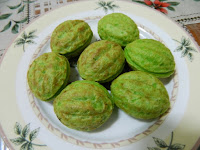FREEDOM TO LEAD
 |
| AUNG SAN SUU KYI |
Aung San Suu Kyi, the daughter of General Aung San, was born in 1945, three years before Burma’s independence and her father's assassination. After leaving the country in the early 1960s for schooling and a position at the United Nations, Suu Kyi returned to Burma in 1988 to be with her ailing mother. She returned to a brewing maelstrom in the country. General Ne Win had just resigned, leaving a vacuum in political leadership; there was growing discontent over the economy and massive, countrywide protests on August 8, 1988. The military cracked down on the pro-democracy demonstrations, killing thousands of protesters.
At a rally of half a million people in Rangoon just three weeks later, Suu Kyi, already in a position of great political influence as the daughter of General Aung San, called for a democratic government on August 26. But a new military junta, led by General Saw Maung, forcefully took control on September 18. In response, Suu Kyi helped establish the National League for Democracy (NLD) and has remained the party’s Secretary General since its founding on September 27, 1988. Yet once the government realized that a sizable political movement was forming behind Suu Kyi’s democratic ideals, she was placed under house arrest on July 21, 1989.
Aung San Suu Kyi has devoted her life to the achievement of a free and open Burma, one in which the military junta is replaced by a democratically elected government that respects human rights. In 1988, Suu Kyi believed the best way to achieve that goal was for the NLD to defeat the military junta in national elections. In the party’s first election in 1990, the NLD won 83% of the parliamentary seats. Suu Kyi, who had been campaigning while under house arrest, was slated to become Prime Minister. Election monitors around the world recognized the fairness of the 1990 elections. Nevertheless, the military junta rejected the results and refused to relinquish its power. It was clear significant violations of civil and political liberties were taking place.
Aung San Suu Kyi’s leadership cannot be attributed solely to her status as the daughter of a political hero. She is deeply influenced by nonviolent civic leaders such as Dr. Martin Luther King Jr. and Mahatma Gandhi. As a political leader, she has managed to find an elegant, sustained balance between defiance and nonviolence. Despite a government ban on political gatherings of more than four people, Suu Kyi embarked on a public speaking tour around the country in order to garner support for the NLD; it was not the first time she had defied government orders, nor would it be the last.
 |
| Aung San Suu Kyi meeting with Barack Obama |
For her efforts to bring democracy to Burma, Suu Kyi has received a number of the world’s highest accolades, including the Sakharov Prize, the Nobel Peace Prize and the Congressional Gold Medal. Suu Kyi, using the $1.3 million award from her 1991 Nobel Peace Prize, chose to invest in the Burmese people and established The Daw Aung San Suu Kyi Trust for Health and Education. Suu Kyi has donated the funds from all of the awards that she has received to this national trust. While Suu Kyi’s work has been supported internationally, inside Burma the government has not only repeatedly put her under house arrest but it has also outlawed mention of her in the press and banned her photo from public display.In stark contrast to the violent tactics of the military government, Suu Kyi’s core message is a call to nonviolent action in the pursuit of democracy. The influence of Buddhism in Aung San Suu Kyi’s politics has been a topic of scholarly analysis for years, and she believes the idea of mutual.
 Since the late 1980s, Burmese activists and their allies have created a vast network of supporters; indeed, without a diverse umbrella of domestic and international support, the Burmese Democratic Movement would not have stood tall in the face of oppression. In May 2012, Suu Kyi traveled outside of Burma for the first time in over 20 years to meet with international supporters. She was welcomed by the government of Thailand, the British parliament and the Nobel Foundation in Stockholm, Sweden, where she was finally able to accept her Nobel Peace Prize, originally awarded in 1991. Conscious of the important role that the international community could play in a democratic transition, she has called on that community for continued sanctions on the Burmese regime and support for human development.Suu Kyi’s continued commitment to nonviolence, combined with the esteem and faith of the Burmese people, has earned the Burmese Democratic Movement solidarity and respect throughout the free world. Nonetheless, Suu Kyi remains vigilant:
Since the late 1980s, Burmese activists and their allies have created a vast network of supporters; indeed, without a diverse umbrella of domestic and international support, the Burmese Democratic Movement would not have stood tall in the face of oppression. In May 2012, Suu Kyi traveled outside of Burma for the first time in over 20 years to meet with international supporters. She was welcomed by the government of Thailand, the British parliament and the Nobel Foundation in Stockholm, Sweden, where she was finally able to accept her Nobel Peace Prize, originally awarded in 1991. Conscious of the important role that the international community could play in a democratic transition, she has called on that community for continued sanctions on the Burmese regime and support for human development.Suu Kyi’s continued commitment to nonviolence, combined with the esteem and faith of the Burmese people, has earned the Burmese Democratic Movement solidarity and respect throughout the free world. Nonetheless, Suu Kyi remains vigilant:



Comments
Post a Comment